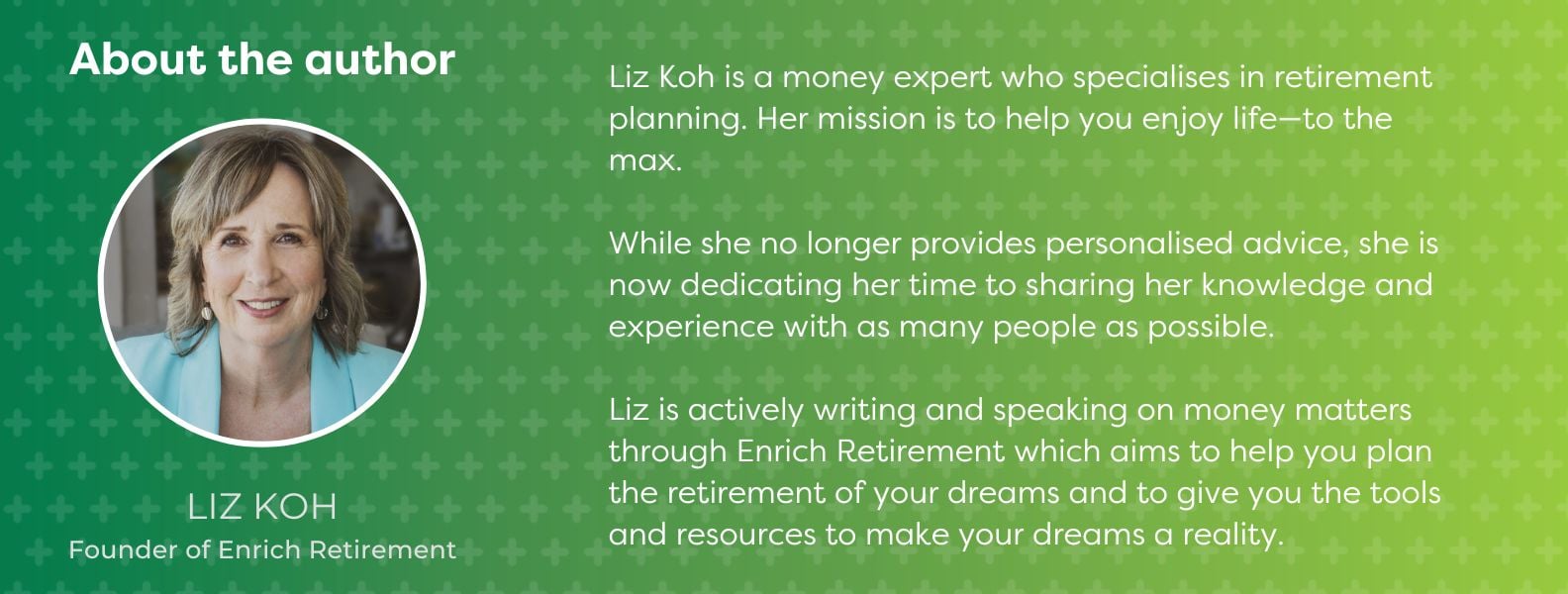HealthCarePlus has joined up with Liz Koh, an author and speaker, who brings a wealth of experience to retirement planning. Liz has spent many years writing about financial matters, sharing the knowledge she has acquired from working with clients over the last two decades. Her mission is to help you enjoy life—to the max! We like that and we are delighted in partnering with Liz to provide information and resources to help our Members get the most out of their retirement years.
We will regularly feature articles from Liz and in this article Liz provides information on Financial Resilience.
While Kiwis are known for their ‘she’ll be right’ mentality, the fact is, we are not bullet-proof. Statistics show that in any given year, around 70% of New Zealanders experience a major life change and one in nine people of working age will suffer a significant fall in income. Adversity can strike people from all backgrounds. Major adverse life events can include severe illness, divorce, redundancy, business failure and the effects of natural disasters such as floods, droughts, earthquake and fire. These events have a more severe and lasting impact on those who lack resilience. The more vulnerable people include those on low incomes and the elderly.
In times of crisis, financial resilience is critical. Financial resilience is the ability to withstand life events that impact one’s assets or income. In plain language, financial resilience is the ability to ‘roll with the punches’ and survive despite setbacks and adverse events.
Financial resilience is important at all stages of life including retirement. In fact, you could argue that it is even more important in retirement, as the lower levels of income in retirement make it much more difficult to recover from an adverse event.
There are three key areas which determine your financial resilience:
- Your personal characteristics
- Your financial resources
- Your financial capability
Let’s look at each of these in more detail.
1. Personal characteristics
People have different psychological reactions to adverse events. Whereas some people crumble at times of crisis, others bounce back and through their positive attitude can even see opportunities in the midst of turmoil. Resilient people have clear goals which give them structure and focus. They are flexible in their approach, which helps them adapt to new circumstances. They are also well organised and don’t descend into a state of chaos when hit by something unexpected. Resilient people are proactive and take responsibility for getting themselves back on track rather than relying on help from someone else. Resilient people are also optimistic about the future and have confidence in their ability to withstand adverse events. Being pessimistic, anxious or depressed can lead to poor financial decision-making. This can become a vicious circle, as the results of poor decisions can lead to increased levels of depression and anxiety.
2. Financial resources
During your working life, your goal is to grow your financial resources through saving and investing, while at the same time ensuring that wealth is not eroded through loss of income or the breakdown of a relationship. In retirement, wealth is generally not added to but consumed. However, the same adverse events that can affect you while you are working still apply and can lead to the erosion of wealth. It’s important to minimise the impact of these events.
It is essential to always have an emergency fund on hand – that is, money which is easily accessible without the risk of loss. Often this takes the form of cash held in a call account. Having cash on hand means debt is avoided. It also means that portfolios which change in value can, if necessary, be left untouched to ride out the ups and downs of markets.
A financially resilient investment portfolio is one which is fully diversified and which includes growth assets to protect against the effects of inflation over the long term.
The loss of a partner through relationship breakdown or death can have a significant impact which is difficult to recover from. If a relationship breaks down, assets can be halved, leaving both parties in a poor financial situation. Taking care of your health and your relationship is therefore vital for the protection of your financial resources and your financial resilience.
3. Financial capability
The ability to make sound financial decisions is a crucial part of financial resilience. Basic skills such as budgeting and debt management help to get through a crisis. Learning how market cycles work and the roles that different asset types play in an investment portfolio will help reduce the anxiety that leads to poor investment decisions.
In a relationship, it is common for one partner to take a lead role in looking after financial affairs. It is wise for both partners to share the decision making equally so that the loss of one partner doesn’t leave the other in a position where they feel ill-equipped to make financial decisions.
Good record keeping is also important so that in the event of illness or death it is easy for someone else to step in to take care of things. Ideally, there should be powers of attorney granted to a family member or friend so they can legally sort out your affairs if you become incapacitated.
Liz Koh is a money expert specializing in retirement planning. The advice given here is general and does not constitute specific advice to any person.. A disclosure statement can be obtained free of charge from www.enrichretirement.com





